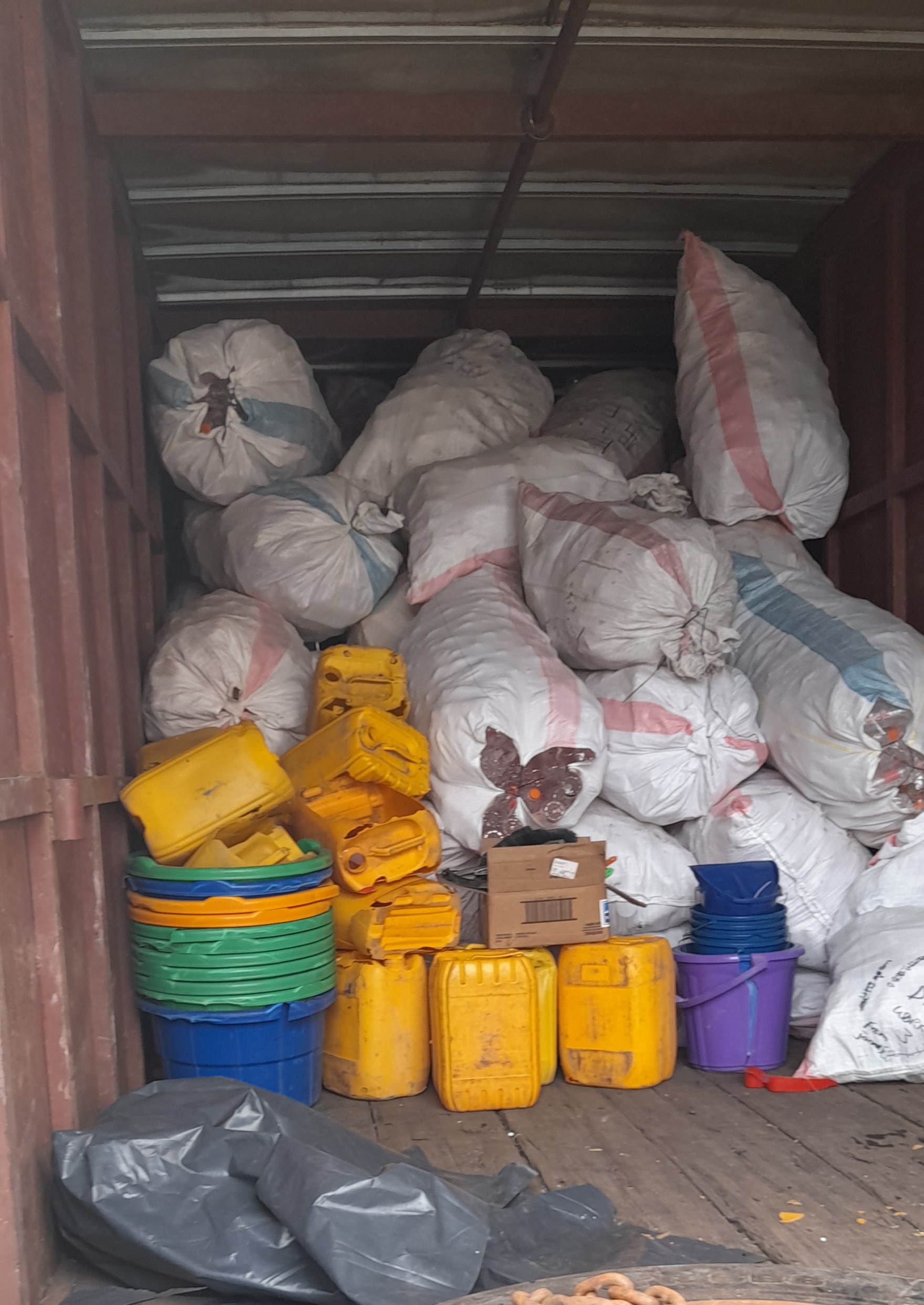PMI VectorLink Malawi Reduces Environmental Impact of IRS
 The U.S. President’s Malaria Initiative VectorLink Project, in partnership with National Malaria Control Programs, protects millions of people every year from malaria, a deadly infectious disease. Indoor residual spraying (IRS) controls malaria by spraying insecticide on the walls and ceilings where malaria-carrying mosquitoes rest. The project ensures the environmental impact of IRS is minimal and responsibly manages waste such as plastic bottles, cardboard boxes, worn personal protective equipment, and other materials. The PMI VectorLink Project adheres to strict environmental guidelines and protocols to protect land, water, air, and human health when implementing IRS and follows a hierarchy of reducing waste and recycling waste to mitigate environmental impact.
The U.S. President’s Malaria Initiative VectorLink Project, in partnership with National Malaria Control Programs, protects millions of people every year from malaria, a deadly infectious disease. Indoor residual spraying (IRS) controls malaria by spraying insecticide on the walls and ceilings where malaria-carrying mosquitoes rest. The project ensures the environmental impact of IRS is minimal and responsibly manages waste such as plastic bottles, cardboard boxes, worn personal protective equipment, and other materials. The PMI VectorLink Project adheres to strict environmental guidelines and protocols to protect land, water, air, and human health when implementing IRS and follows a hierarchy of reducing waste and recycling waste to mitigate environmental impact.
Solid waste that cannot be reused and has not come into contact with insecticides or has been washed clean of the insecticides meet the criteria for recycling. Waste management remains a challenge in Malawi, however, as there are few companies able and licensed to work in the country. The PMI VectorLink Project established public-private partnerships with two reputable waste recyclers in Malawi that are approved and licensed by the Government of Malawi through the Department of Environmental Affairs.
The project now donates the eligible waste for recycling, which reduces the amount of waste being sent to the landfill, to O.G. Plastic Industries (2008) Limited, CSH Investments, and HongSheng Packaging Limited. The PMI VectorLink Project signed memorandums of understanding (MoUs) with the companies which lays out how the waste should be handled, recycled, and managed. This past year the PMI VectorLink Project was able to recycle 2,682 insecticide bottles; 3,147 Kg of cardboard/cartons and paper; 1,148 face shields; 19,719 water bottles (500 ml) and 21,540 Maheu Energy Drink bottles. Other items that were recycled included unrepairable Goizper Sprayers, worn out helmets; damaged plastic basins, containers, jerry cans, cups, and other plastic ware; and torn and used black plastic sheets used for covering household items during spray.
These products have been transformed in many different ways. For instance, insecticide bottles and spray operators’ scratched face shields have been recycled into solvent containers, laundry jugs, and liquid soap bottles. The plastic containers from the energy drinks consumed by spray operators before the day’s work are made into black plastic sheets, which can be used together with grass as roof covers for houses.
“The work being done by PMI VectorLink Malawi to combat malaria through indoor residual spraying is very commendable,” said Patrick Medius Nyirenda, Environmental Officer, from Malawi’s Environmental Affairs Department. “The battle against diseases such as malaria cannot be won by government alone. It is pleasing to note that in order to ensure sustainable implementation of the project, PMI VectorLink has committed itself towards recycling of waste and unwanted materials from their operations. This is in line with [Malawi’s] National Waste Management Strategy (2019-2023), which promotes waste segregation, reuse, recycling, and resource recovery as key strategies to address waste management challenges in the country.”
Recycling conserves natural resources, strengthens the economy through sales of products from the recycling processes and helps to create jobs in the industry. Recycling is an essential method of sustainable materials management, which emphasizes the productive and sustainable use of materials across their entire life cycle while minimizing the environmental impact. Recycling also further conserves material which would have been used as raw materials from the natural environment to produce the same needed products.


